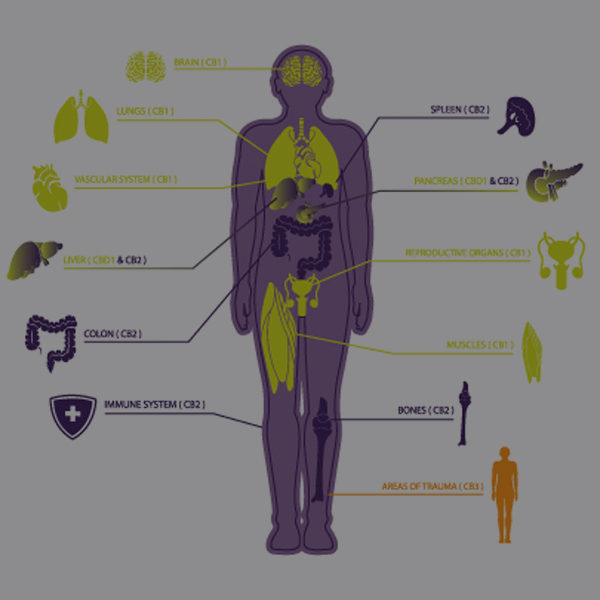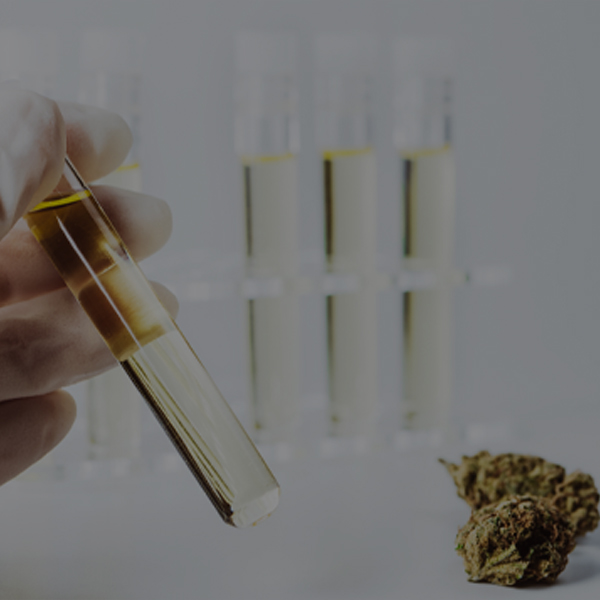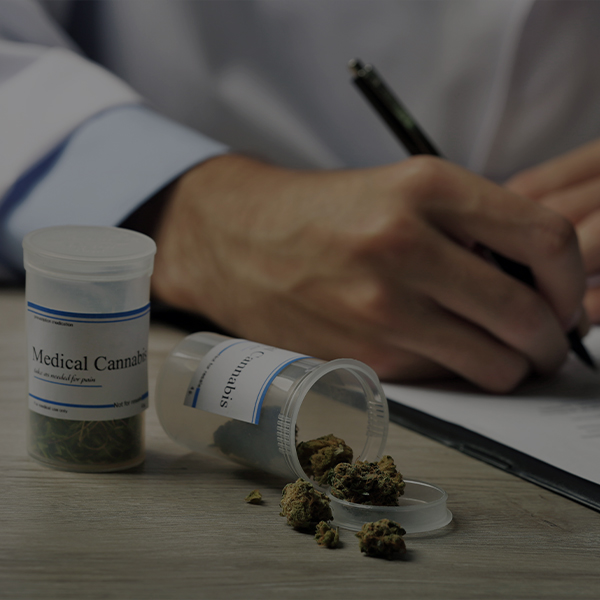[header-section img_src=”/wp-content/uploads/2022/04/cannabis-head.jpg” title=”Master of Science in Medical Cannabis
(Retired)” subtitle=”” focusx=”center” focusy=”center” termstart=”no”]
This program has been retired and is no longer being offered.
The Master of Science in Medical Cannabis Therapeutics program (MS-MCT) prepared students to thrive in the cannabis industry as healthcare providers, advocates, educators, coaches, or entrepreneurs. Graduates learned to use cannabis science evidence and holistic approaches to educate, coach, and advocate for cannabis patient populations.
Please note that this program has been retired and is no longer being offered. We welcome you instead to the online medical cannabis certificate program, which starts three times per year: January, May and September!
Master of Science in Medical Cannabis
Therapeutics Program Overview
30 credits
100% online
Combination of optional recorded live classes
and asynchronous assignments
Highly qualified, post-graduate level faculty
Model Curriculum
Courses
Admissions Info
The Master’s degree in Medical Cannabis Therapeutics (MS-MCT) program prepared graduates to:
-
Enter the cannabis industry as healthcare providers, advocates, educators, or coaches. -
Apply evidence-based, conceptual cannabis knowledge to clinical settings. -
Employ best practices in patient assessment, dosing guidelines, and routes of administration. -
Learn to use cannabis science evidence and holistic approaches to educate, coach, and advocate for cannabis patient populations. -
Be thought leaders in coaching and educating cannabis patients, the general public, policy makers, and the medical community.
[term-start]
Apply Now
Currently, some form of cannabis is legal in nearly every state. We’re optimistic that federal cannabis reform is forthcoming. Now more than ever, it’s critical that we address the cannabis educational gap in the medical community, because as more states adopt cannabis reform, more patients will use cannabis and healthcare professionals will treat these patients. The Master of Science in Medical Cannabis Therapeutics program will prepare graduates to apply evidence-based, conceptual cannabis knowledge to clinical settings. Graduates will consider best practices around patient assessment, dosing guidelines, and routes of administration and will serve as thought leaders in coaching and educating cannabis patients, the general public, policy makers, and the medical community.
Timothy Byars
Program Director

Admissions Requirements
- Bachelor’s degree in health or science related field or 90 credits in related field
- Completion of at least one semester of Anatomy/Physiology or a clinical terminal degree or program director’s permission
- Preferred minimum GPA: 3.0
- Resume or CV
- 300-500-word statement of intent
- English language proficiency
Schedule and Course Delivery
The Master of Science in Medical Cannabis Therapeutics degree program courses were offered online, using a combination of synchronous and self-paced formats. For each seven-week course, two to three weeks were comprised of live classes, while the rest was asynchronous coursework with defined weekly outcomes.
A full-time student could complete the degree program in as few as twenty months. Live classes were delivered in real time, with audio and video connection to faculty and fellow students. The connection among participants was comparable to that of on-site classes, with the added benefit of attending from the comfort and convenience of home. Distance education extended students’ network of opportunities internationally, while Pacific College’s synchronous instructional design fostered camaraderie often exceeding that of on-site models.
Master’s in CANNABIS Program Learning Outcomes
Upon the successful completion of this program, our alumni are able to:
- Explain the anatomical and physiological mechanisms of the endocannabinoid system.
- Evaluate evidence-based literature to make informed decisions about medical cannabis (CBD) treatment protocols.
- Critically assess emerging cannabis legislation in the context of historic, legal, and ethical issues.
- Practice a culture of harm reduction with medical cannabis for populational health across the lifespan.
- Apply knowledge of cannabis pharmacokinetics and pharmacodynamics to determine the safety, efficacy, and appropriateness of cannabis use.
- Apply holistic, person-based care while respecting patient values within the scope of professional practice.
- Demonstrate a commitment to the therapeutic application of cannabis (CBD) through advocacy, professional development, and interprofessional collaboration.
- Evaluate social justice initiatives to ensure equitable access to the cannabis industry and to cannabis health care.
- Evaluate how bias, structural racism, and social determinants facilitate cannabis healthcare inequities.
Model Curriculum
(30 total credits)
| Term | Course Title | Credits |
|---|---|---|
| Term 1 | Introduction to Medical Cannabis History and Policy | 3 |
| Introduction to the Endocannabinoid System | 3 | |
| Term 2 | Therapeutic and Medicinal Uses of Cannabinoids, Terpenes, and Flavonoids | 3 |
| Advanced ECS and Cannabinoid Pharmacology | 3 | |
| Term 3 | Cannabis Research and Evidence-Based Literature Review | 3 |
| Ethics, Advocacy, and Public Health: Emerging Issues for Healthcare Professionals | 3 | |
| Term 4 | Adverse Effects, Product Safety, and Patient Recommendation Considerations | 3 |
| Cannabinoid Therapeutics I: Clinical Applications for Symptom Management | 3 | |
| Term 5 | Cannabis Therapeutics II: Clinical Applications for Chronic Conditions | 3 |
| Capstone | 3 |
Courses IN THE MS of Science in Medical Cannabis Therapeutics
Click on the image inside any of the thumbnails below to read the course description (note: clicking on the course name will not open the pop-up window).

Introduction to Medical Cannabis History and Policy
In this course, students will explore the history of medicinal and recreational cannabis use, including its ubiquitous use in antiquity across multiple cultures and geographical regions. Students will learn about cannabis use in the West and how public policy, cultural movements, and societal factors eventually led to laws in the U.S. intended to prohibit cannabis use. Furthermore, students will learn about the criminalization of cannabis in the twentieth century, an era that was characterized by a dominant anti-drug sentiment in both public opinion and government policy and that is now referred to as the War on Drugs. Emphasis will be given to the exploration of how policies, international treaties, and historical figures influenced the modern regulation of cannabis.
Introduction to Medical Cannabis History
and Policy

Introduction to the Endocannabinoid System
In this course, students will be introduced to the human endocannabinoid system and will discuss basic anatomy and physiology of the ECS. This course introduces foundational concepts, such as how endogenous cannabinoid ligands bind with receptors and how enzymes metabolize those compounds. The course will also introduce phyto- and synthetic cannabinoids to enable students to assess how these compounds interact with the ECS. Finally, students will learn about clinical endocannabinoid deficiency and how to upregulate endocannabinoid tone.
Introduction to the Endocannabinoid System

Therapeutic and Medicinal Uses of Cannabinoids, Terpenes, and Flavonoids
In this course, students will explore healthcare-relevant botany of cannabis plants and facets of cannabis product chemistry and laboratory testing that facilitate better healthcare decisions. Students will learn about the taxonomy of cannabis, common and rare secondary metabolites, and the biosynthetic pathway of those compounds. Furthermore, students will evaluate the evidence supporting the concept of entourage effect and propose potential mechanisms of action. Finally, students will learn about basic techniques used to test cannabis compounds and cannabis products, and students will learn to identify toxins that should not be present in cannabis products.
Therapeutic and Medicinal Uses of Cannabinoids, Terpenes, and Flavonoids.

Advanced ECS and Cannabinoid Pharmacology
In this course, students will build on their understanding of the anatomy and physiology of the endocannabinoid system— including the receptors (their locations throughout the body and their physiological relevance), endogenous ligands, and enzymes that metabolize those ligands— and how those parts work together to facilitate biological homeostasis. A focus of this course will be on advanced concepts related to cannabinoid pharmacokinetics and pharmacodynamics. While the emphasis on this course is not botany, some attention will be given to cannabinoids and other compounds in the cannabis plant that interact with and influence the ECS. For example, students will evaluate how different routes of administration impact the absorption, distribution, metabolism, and elimination of phytocannabinoids. Finally, this course goes beyond the discussion of the cannabinoid receptors and explores how non-cannabinoid receptor mechanisms can influence the ECS.
Advanced ECS and Cannabinoid Pharmacology

Cannabis Research and Evidence-Based Literature Review
In this course, students will analyze, synthesize, and utilize cannabis science information and evidence in meaningful and effective ways. This course prepares the learner to support, educate, and coach patients, other healthcare professionals, and the general public with evidence-based information. The learner will focus on the research analysis process and how to create an evidence-based literature review on a healthcarecannabis science related topic.
Cannabis Research and Evidence-Based Literature Review

Ethics, Advocacy, and Public Health: Emerging Issues for Healthcare Professionals
As cannabis prohibition evolves into legal regulation, the cannabis healthcare professional must be adequately prepared to address the many ethical, legal, social justice, and public health issues related to emergence of legal cannabis models. In this course, students will explore public health policy related to the regulation of medical and adult use cannabis with an emphasis on how a harm reduction approach might be utilized.
Furthermore, this course will focus on whether the implementation of social equity and diversity and inclusion programs have helped communities and individuals who have been disproportionately impacted by the War on Drugs. Finally, students will evaluate how current and proposed legislation and related ethical questions impact the role of medical cannabis healthcare providers.
Ethics, Advocacy, and Public Health: Emerging Issues for Healthcare Professionals

Adverse Effects, Product Safety and Patient Recommendation Considerations
This course will discuss the role of pharmacovigilance in cannabinoid therapeutics as it relates to adverse effects, product safety, and patient outcomes. Cannabinoids and cannabis-based medicine can produce adverse drug reactions (ADRs) that can occur unintentionally when taken outside of their therapeutic range. Incidence and severity of ADRs will vary based on cannabinoid, dose, route of administration, age, genetics, comorbidities, other medications, and gender. Students will learn to recognize potential safety risks of cannabinoids and cannabisbased medicines and provide recommendations that minimize those risks based on the latest evidence.
Adverse Effects, Product Safety and Patient Recommendation Considerations

Cannabinoid Therapeutics 1 & 2
In these courses, students will be introduced to assessment, symptom management, and therapeutic dosages for cannabis patients. Additionally, students will explore the therapeutic effects of cannabinoids for symptom management. Scientific and clinical evidence will be used to support the clinical use of cannabinoids in a safe and effective manner. These courses focus on the physiology, pathophysiology, and evidence-based cannabinoid treatment strategies for psychiatric, neurological, gastrointestinal, oncological, cardiovascular, immunological, respiratory, and musculoskeletal disorders. Students will also explore the therapeutic effects of cannabinoids on specific conditions and disease states. Scientific and clinical evidence will be used to support the clinical use of cannabinoids in a safe and effective manner, focusing on the physiology, pathophysiology, and evidence-based treatment strategies for psychiatric, neurological, gastrointestinal, oncological, cardiovascular, immunological, respiratory, and musculoskeletal disorders.
Cannabinoid Therapeutics I:
Clinical Applications for Symptom Management
Cannabinoid Therapeutics II:
Clinical Applications for Chronic Conditions

Capstone
The capstone course is a culminating experience in the MCT program that includes a seminar series and the completion of the student’s independent capstone project.
Students will complete an independent project with the guidance of a course instructor. The capstone project enables students to demonstrate mastery of all program competencies by applying theoretical concepts to real-world settings. For example, students might elect to participate in an organizational setting of their choice—a hospital, integrative clinic, community agency or non-profit organization, a cannabis business, and so forth—where they will independently define a problem or opportunity and determine the information, platform, or technique required to address the problem or opportunity. The capstone project should produce a netpositive difference for the cannabis or healthcare community.
Seminars will focus on professionalism within the medical cannabis industry and will discuss how cannabis industry thought leaders can use transformative change models to develop advocacy and legislative strategies in the medical and adult use cannabis industries. Students will consider specific plans for growth as expert leaders and advocates within the medical cannabis field.
Capstone
Master’s degree in Medical
Cannabis Therapeutics FAQ
Who was eligible for the Master of Science in Medical Cannabis Therapeutics Program?
To be eligible for the MS in Medical Cannabis Therapeutics Program, students must have had the following:
- Bachelor’s degree in health or science related field or 90 credits in related field.
- Completion of at least one semester of Anatomy/Physiology or a clinical terminal degree or program director’s permission.
- 300-500 word statement of intent.
How long was the Masters in Cannabis Program?
The Master of Science in Medical Cannabis Therapeutics Program was comprised of 10 total courses (30 credits total) with each course being 7 weeks long. The Master of Science in Medical Cannabis Therapeutics Program can be achieved in as few as 20 months.
What was the class schedule like for the Master of Science in Medical Cannabis Therapeutics Program?
The Master of Science in Medical Cannabis Therapeutics Program was offered online, using a combination of live classes and self-paced assignments. For each 7-week course, 2-3 weeks were scheduled, live classes while the remaining classes were self-paced with specific assignment due dates.
What was the tuition fee for the Master in Cannabis?
The MS in Medical Cannabis Therapeutics Program was $530 per credit for a total tuition of $15,900.
Is Pacific College of Health and Science accredited?
Yes. Pacific College is regionally accredited by WSCUC (WASC) (see www.acswasc.org for more information).
Did Pacific College of Health and Science offer financial aid?
Yes, Pacific College of Health and Science offered financial aid to those who qualified.
What were the learning outcomes for alumni of the Master of Science in Medical Cannabis Therapeutics?
Alumni can evaluate evidence-based literature to make informed decisions about medical cannabis treatment protocols, apply knowledge of cannabis pharmacokinetics and pharmacodynamics to determine the safety, efficacy, and appropriateness of cannabis use and more.
Were the Master of Science in Medical Cannabis Therapeutics Program classes recorded?
Yes, the Master of Science in Medical Cannabis Therapeutics Program classes were recorded.
Can alumni recommend medical cannabis upon completion of the Master of Science in Medical Cannabis Therapeutics Program?
The Master of Science in Medical Cannabis Therapeutics Program prepared graduates for consultation regarding medical cannabis, but requirements have evolved. We encourage you to check your specific state requirements.
Looking for Medical Cannabis education?
If you think a career in medical cannabis is something you would like to pursue, we encourage you to look into the online Medical Cannabis certificate program or contact us and speak to an admissions representative to get started on your new journey!
For more information, call (855) 866-6767 or fill out our contact form to be contacted by a Pacific College representative.





